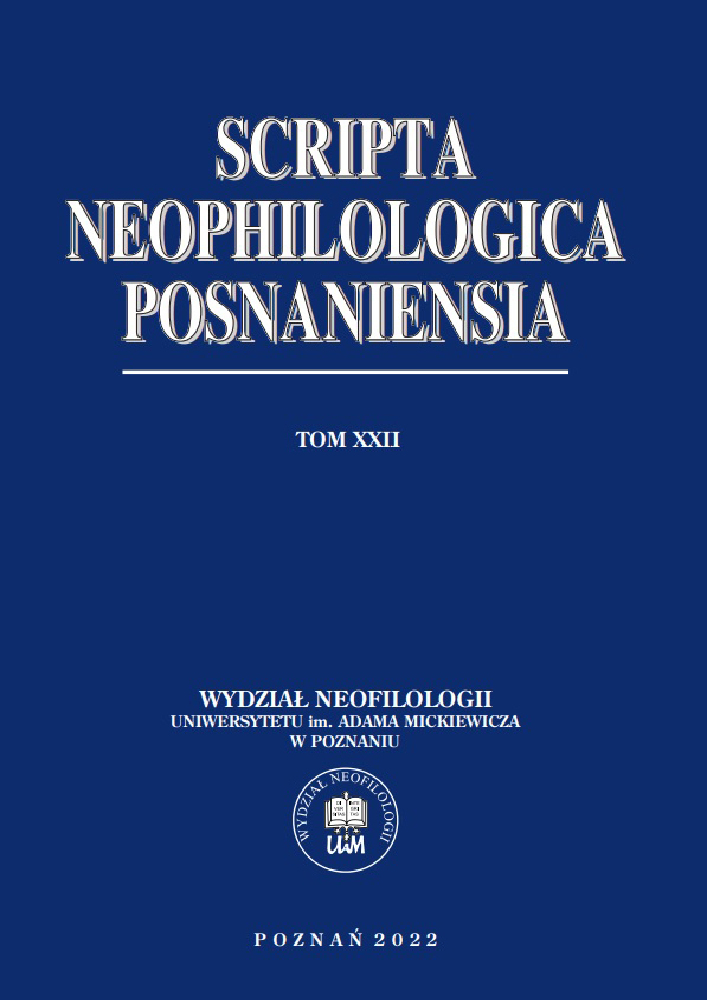Abstrakt
This paper offers insight into discursive patterns of the two most recent BritishPrime Ministers’ inaugural speeches from an anthropological pragmatics perspective. The paper employed speech act theory in conjunction with a qualitatively centered critical discourse analysis study to unveil messages within the illocutionary communicative acts in the context of public political speeches. It is argued that both speeches are inherently embedded within threat-based rhetoric whose persuasive effect follows from a predominant use of the pathos and ethos appeals. Advancing the concept of speech acts as a tool for establishing pragma-discursive patterns, this paper demonstrates that generating fear in public discourse is essentially strategic and goal-oriented practice. Most importantly, the strategies used by Rishi Sunak rely heavily on his use of promises and statements, reflecting patterns of legitimisation through building a credibility schema and proximising the frame of fear mongering. Liz Truss on the other hand, develops slightly different narrative patterns, drawing mainly upon promises that help enact ‘collective leadership’ in the times of threat and a socio-economic crisis.
Bibliografia
Analysis: Liz Truss's first speech as UK prime minister in full - CGTN, retrieved: 02.11.2022 from: https://newseu.cgtn.com/news/2022-09-07/Liz-Truss-first-speech-as-UK-prime-mini-ster-summary-and-tr
Rishi Sunak's first speech as Prime Minister: 25 October 2022 - GOV.UK retrieved: 02.11.2022 from https://www.gov.uk/government/speeches/prime-minister-rishi-sunaks-statement-25-october-2022
Aijón, O. 2013. "On the meanings and functions of grammatical choice: the Spanish first-person plural in written-press discourse". Pragmatics 23.4. 573-603.
Altheide, D.L. 2002. Creating fear. New York: Aldine de Gruyter.
Altheide, D.L. 2006. Terrorism and the politics of fear. Lanham, MD: AltaMira Press. https://doi.org/10.1177/1532708605285733 DOI: https://doi.org/10.1177/1532708605285733
Aristotle. ([348-322 B.C.] 2001) [TEXNH PHTOPIKH.] [Rhetorica]. Polish translation: H. Podbielski.
Retoryka. In: Głębicka, E. and N. Szancer (eds). Arystoteles. Dzieła wszystkie. Warszawa: Wydawnictwo Naukowe PWN. 266-478.
Aristotle. ([348-322 B.C.] 1926) [TEXNH PHTOPIKH.] Translated into English by John Henry Freese. The Art of Rhetoric. London: William Heinemann. https://doi.org/10.4159/DLCL.aristotle-art_rhetoric.1926 DOI: https://doi.org/10.4159/DLCL.aristotle-art_rhetoric.1926
Austin, J.L. [1962] 1975. How to do things with words. Oxford: Oxford University Press. https://doi.org/10.1093/acprof:oso/9780198245537.001.0001 DOI: https://doi.org/10.1093/acprof:oso/9780198245537.001.0001
Cap, P. 2006. Legitimization in political discourse: a cross disciplinary perspective on the modern US war rhetoric. Newcastle: Cambridge Scholars Press.
Cap, P. 2010. "Axiological aspects of proximization". Journal of Pragmatics 42.2. 392-407. https://doi.org/10.1016/j.pragma.2009.06.008 DOI: https://doi.org/10.1016/j.pragma.2009.06.008
Cap, P. 2013. Proximization: the pragmatics of symbolic distance crossing. Amsterdam: John Benjamins. https://doi.org/10.1075/pbns.232 DOI: https://doi.org/10.1075/pbns.232
Chilton, P. 2004. Analysing political discourse. Theory and practice. London: Routledge. https://doi.org/10.4324/9780203561218 DOI: https://doi.org/10.4324/9780203561218
Chovanec, J. 2010. "Legitimation through differentiation: discursive construction of Jacques le worm Chirac as an opponent to military action". In: Okulska, U. and Cap, P. (eds). Perspectives in politics and discourse. Amsterdam: John Benjamins. 61-82. https://doi.org/10.1075/dapsac.36.07cho DOI: https://doi.org/10.1075/dapsac.36.07cho
Chruszczewski, P.P. 2011. "Research in anthropological pragmatics". Styles of Communication 3.1. 48-70.
Chruszczewski, P.P. 2022. "Językoznawstwo antropologiczne we współcześnie prowadzonych badaniach nad językiem i kulturą." Academic Journal of Modern Philology 15. 117-126.
Cosmides, L. and J. Tooby. 2000. "Evolutionary psychology and emotions". In: Haviland, L. M.and J. Jones. (eds). Handbook of emotions. New York: Guilford Press. 91-115.
Cruz, C. 2000. "Identity and persuasion: how nations remember their pasts and make their future". World Politics. 52. 275-312. https://doi.org/10.1017/S0043887100016555 DOI: https://doi.org/10.1017/S0043887100016555
Dunmire, P.L. 2011. Projecting the future through political discourse. Amsterdam: John Benjamins. https://doi.org/10.1075/dapsac.41 DOI: https://doi.org/10.1075/dapsac.41
Gore, Al. 2004. "The Politics of fear." Social Research. 71.4. JSTOR, http://www.jstor.org/stable/40971977. Accessed 2 Nov. 2022. https://doi.org/10.1353/sor.2004.0040 DOI: https://doi.org/10.1353/sor.2004.0040
Fortenbaugh, W. 1974. Aristotle's rhetoric on emotions. Metuchen: Scarecrow.
Goffman, E. 1956. The presentation of self in everyday life. Edinburgh: University of Edinburgh, Social Sciences Research Centre.
Gough, V. and M. Talbot. 1996. "'Guilt over games boys play': Coherence as a focus for examining the constitution of heterosexual subjectivity on a problem page. In: Caldas-Coulthard, C.R. and M. Coulthard. 1996. Texts and practices: readings in critical discourse analysis. London: Routledge. 214-230.
Halliday, M.A.K. and H. Ruqaiya. 1976. Cohesion in English. London: Longman.
Krzeszowski, T. 1990. "The axiological aspect of idealized cognitive models". In: Lewandowska-Tomaszczyk, B. (Ed.). Meaning and lexicography. Amsterdam: John Benjamins. 135-166. https://doi.org/10.1075/llsee.28.16krz DOI: https://doi.org/10.1075/llsee.28.16krz
Lakoff, G. and M. Johnson. 1980. Metaphors we live by. Chicago: University of Chicago Press.
Levinson, S.C. 1983. Pragmatics. Cambridge: Cambridge University Press.
Politico.eu https://www.politico.eu/europe-poll-of-polls/united-kingdom/ (date of access: 02.11.2022)
Pomeroy, L. 2005. The new science of axiological psychology. Amsterdam: Rodopi. https://doi.org/10.1163/9789401202169 DOI: https://doi.org/10.1163/9789401202169
Romanyshyn, N. 2020. "Application of corpus technologies in conceptual studies (based on the concept Ukraine actualization in English and Ukrainian political media discourse". COLINS. 472-488.
Schiffrin, D. 1987. Discourse markers. Cambridge: Cambridge University Press. https://doi.org/10.1017/CBO9780511611841 DOI: https://doi.org/10.1017/CBO9780511611841
Schiffrin, D. 1992. "Anaphoric then: aspectual, textual and epistemic meaning". Linguistics. 30.4. 753-92. https://doi.org/10.1515/ling.1992.30.4.753 DOI: https://doi.org/10.1515/ling.1992.30.4.753
Searle, J. R. 1975. "A taxonomy of illocutionary acts". In: Gunderson, K. (ed.). Language, mind and knowledge. Mineapolis: University of Minnesota Press. 344-369.
Licencja

Utwór dostępny jest na licencji Creative Commons Uznanie autorstwa – Bez utworów zależnych 4.0 Międzynarodowe.

